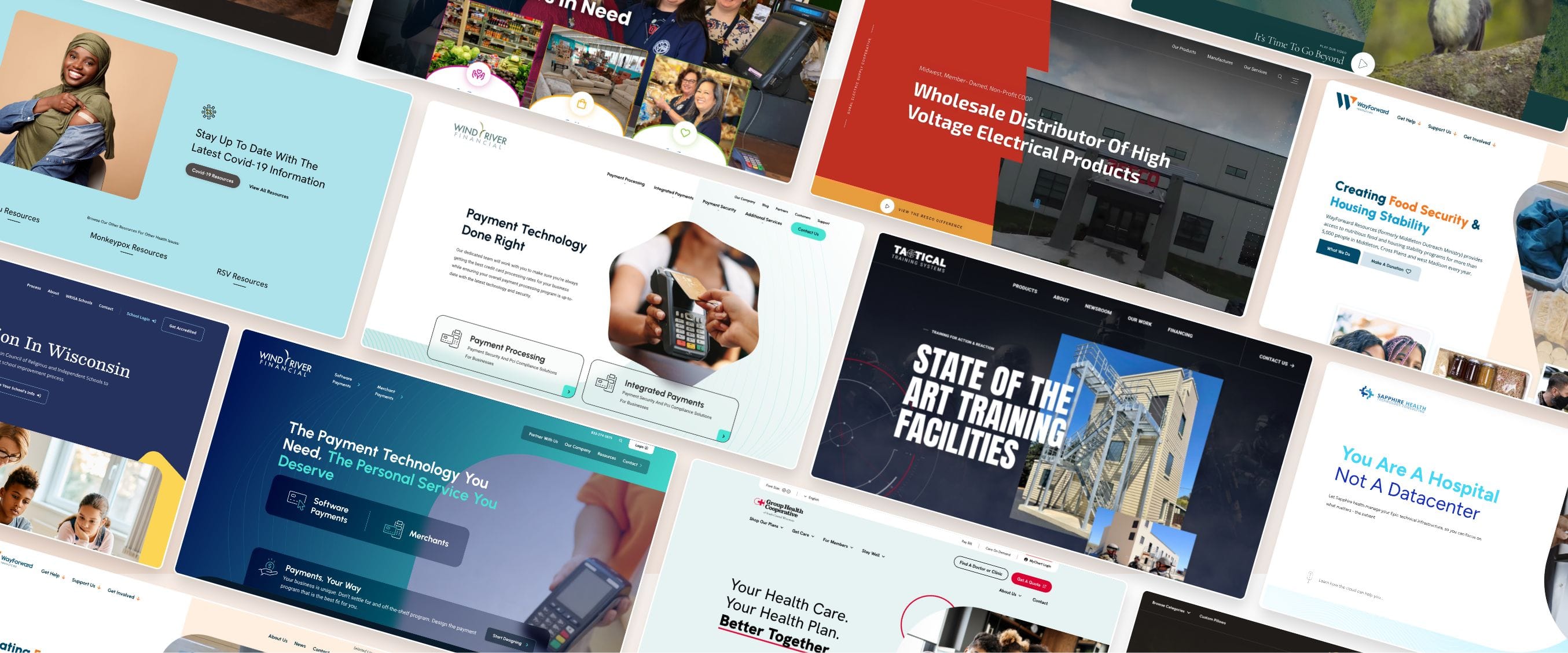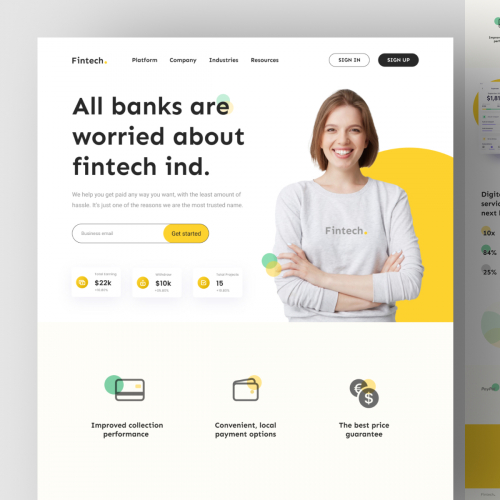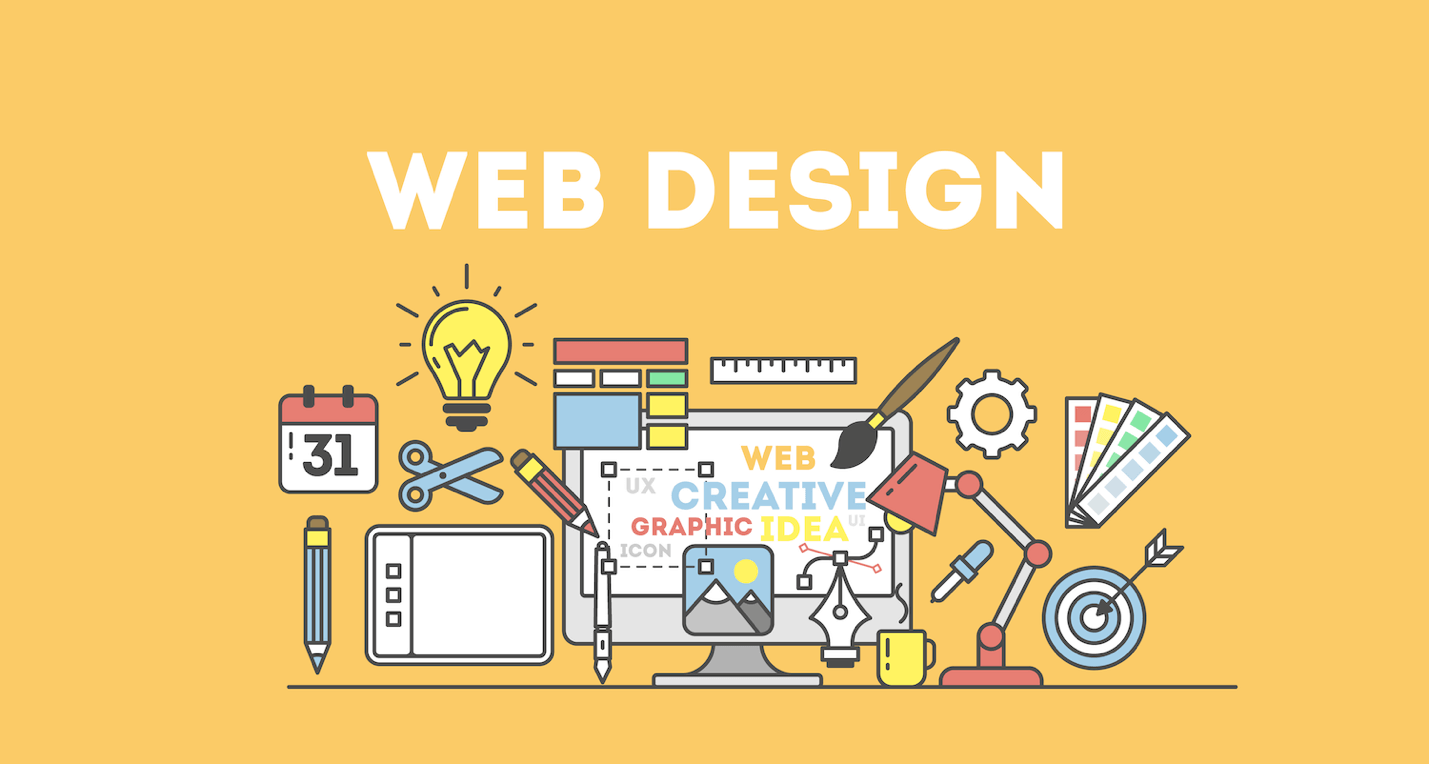Easy-to-Navigate Website Design Services That Improve Performance and Functionality
Easy-to-Navigate Website Design Services That Improve Performance and Functionality
Blog Article
Leading Tips for Developing an Impactful Site Style That Transforms
To attain this, one need to think about a range of elements, including recognizing the target audience, focusing on customer experience, and enhancing for mobile platforms. The tactical usage of engaging call-to-actions and a well-defined visual power structure plays a vital function in guiding customers via their journey.

Understand Your Target Audience
Recognizing your target market is fundamental to reliable web site style, as it lays the groundwork for developing an appealing user experience. Recognizing who your customers are, including their demographics, choices, and behaviors, makes it possible for designers to customize the web site's content, format, and performance to meet certain needs.
Performing complete marketing research is crucial in this procedure. Surveys, meetings, and analytics can provide useful insights right into user assumptions and discomfort points. By assembling this data, developers can create individual personas that represent various segments of the target market, guaranteeing that layout decisions are notified and pertinent.
Moreover, recognizing the target audience helps in choosing appropriate style elements such as color pattern, typography, and imagery that resonate with individuals. A website that speaks straight to its target market fosters a sense of link and trust fund, encouraging longer sees and greater conversion rates.
Eventually, a user-centered technique to internet site design not only improves customer satisfaction but likewise sustains organization purposes by driving engagement and loyalty. By prioritizing the requirements and choices of the target market, an internet site can effectively serve its purpose and accomplish preferred results.
Prioritize Individual Experience
To improve the total performance of an internet site, focusing on customer experience (UX) is essential (Website Design). A well-designed UX ensures that visitors can navigate the site effortlessly, discover information rapidly, and engage with content meaningfully. This results in enhanced user complete satisfaction and higher conversion rates
Begin by implementing intuitive navigating. Menus needs to be practically structured, permitting individuals to find essential locations of the website with marginal effort. Consistency in design components, such as color pattern and font styles, promotes familiarity, which is crucial for keeping customer interaction.
Additionally, consider the filling speed of your website. A hold-up of simply a few secs can cause considerable drop-offs, as users are much less likely to wait for a slow-loading web page. Enhancing images and maximizing code can improve performance and preserve visitors.
By focusing on customer experience, you not only produce an extra enjoyable atmosphere for site visitors yet likewise enhance your brand name's reliability. Eventually, an emphasis on UX is an investment in the long-term success of your website.
Maximize for Mobile Instruments
Enhancing for mobile devices is vital in today's electronic landscape, where a raising number of individuals access web sites through smart devices and tablet computers. A mobile-friendly layout not just boosts user experience however likewise plays a significant role in improving online search engine rankings. To achieve this, it is vital to embrace a responsive style that immediately changes to various screen sizes and alignments.

Loading rate is one more vital element; mobile users are typically much less client and expect rapid access to information. Maximize pictures and leverage internet browser caching to enhance performance. Examination your web site on multiple tools and screen resolutions to recognize and remedy any possible usability concerns. By prioritizing mobile optimization, you ensure that your internet site stays affordable and efficiently involves a wider target market.
Use Engaging Call-to-Actions
A website's efficiency usually depends upon its capability to lead visitors toward wanted activities, making compelling call-to-actions (CTAs) necessary parts of design. CTAs function as the crucial points that guide customers to engage with the website, whether that suggests making a purchase, enrolling in a newsletter, or downloading and install a source.
To create effective CTAs, clearness is vital. Usage succinct language that clearly communicates the action you desire the individual to take. Phrases such as "Begin," "Join Free," or "Store Now" not just communicate urgency however likewise get rid of obscurity. The positioning of CTAs is just as vital; they should be strategically positioned throughout the webpage to ensure they are easily visible, especially in high-traffic locations.
Furthermore, consider making use of directional hints, such as arrows or photos, to assist individuals towards these buttons. By concentrating on these aspects, businesses can dramatically visit site improve user involvement, driving conversions and eventually attaining their web site's goals.
Emphasis on Visual Pecking Order
Reliable web site design depends greatly on a well-structured visual hierarchy that guides customers with web content perfectly. By arranging elements in a fashion that prioritizes info, developers can improve customer experience and help with decision-making. This entails utilizing dimension, shade, contrast, and spacing purposefully to draw focus to the most essential components of a page.
Using bigger fonts for headings and subheadings develops a clear distinction between various areas, enabling customers to scan content easily. In addition, employing different shades for switches and calls-to-action can capture individual focus and encourage interaction. Whitespace is an additional essential component; it stops mess and enables users to concentrate on vital messages without distractions.
Pictures and graphics must enhance the text while also adhering to the well-known hierarchy, strengthening the total message (Website Design). Uniformity in design elements, such as color design and typography, more enhances the aesthetic hierarchy, making navigation user-friendly

Conclusion
To conclude, efficient website design requires a comprehensive understanding of the continue reading this target market, prioritization of customer experience, and mobile optimization. The critical use engaging call-to-actions and a distinct visual hierarchy additionally boosts individual interaction. By executing these principles, websites can attain greater conversion rates, guaranteeing that design elements not just draw in visitors yet additionally assist in seamless navigating and communication. Eventually, a well-executed website layout offers as an important element in driving user activities and accomplishing business purposes.
Report this page